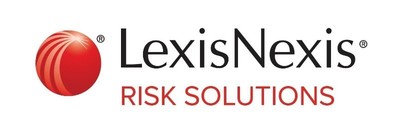Every Peso Lost to Fraud in Mexico Costs Firms $4.08 According to LexisNexis True Cost of Fraud Study
Press Releases
Jun 20, 2024
- Fraud has increased for 54% of Mexican organizations year-on-year.
- In LATAM, digital channels account for more fraud losses than physical channels.
- Four in five Mexican organizations say fraud is affecting their customer conversion rates.
MEXICO CITY, June 20, 2024 /PRNewswire/ — LexisNexis® Risk Solutions has unveiled the findings of its 2023 LexisNexis® True Cost of Fraud™ Study – Latin America. The annual report, based on a commissioned survey conducted by Forrester Consulting, reveals that businesses in LATAM now bear a cost of fraud that is 3.9 times the face value lost in fraudulent transactions.
In Mexico, 54% of companies reported an increase in fraud in the 12 months prior to the survey, while organizations incur an average cost of $4.08 ($3.24 for retailers and $5.27 for financial institutions) for every peso lost to fraud. These costs encompass financial losses due to fraud, as well as internal labor expenses, external costs, legal costs and recovery fees, along with the expenses associated with replacing or redistributing lost or stolen merchandise.
While rapid adoption of digital payments not only improves payment experiences, it also exposes numerous systems and channels to more innovative fraud attacks. Across LATAM, digital channels account for 51% of overall fraud losses, surpassing physical fraud for the first time. Consequently, cybercriminals exploit the anonymity of digital, cross-border transactions to execute fast and untraceable fraud. Additionally, the rise of scams and the use of technology, such as artificial intelligence (AI), expands cybercriminals’ ability to exploit both consumers and businesses.
The study also reflects the evolution of criminal tactics. In LATAM, the stage of the customer journey with the highest fraud losses is new account creation, presenting the greatest challenge for both financial institutions (46%) and retailers (44%). Criminals are exploiting the growing popularity of digital banking and digital commerce by using stolen or synthetic identities to open fraudulent accounts.
“It is self-evident that new forms of fraud increase the risk of financial losses for consumers and businesses,” said Rafael Costa Abreu, director, fraud and identity, LATAM at LexisNexis Risk Solutions. “The issues facing businesses become even more challenging due to the fraud multiplier effect, where the losses experienced by organizations continue to increase and far exceed the lost face value in any transaction. Preventing fraud requires a multi-layered approach throughout the customer journey.”
Key Findings from the True Cost of Fraud Study – Latin America:
- Commercial Impact: Fraud significantly affects how customers perceive and interact with businesses. Seventy-eight percent (78%) of Mexican respondents report that fraud has influenced customer satisfaction compared to 77% across LATAM. Eighty percent (80%) notice its impact on customer conversion, equal to the 80% recorded in LATAM.
- Evolving Fraud Management Practices: Criminals constantly innovate. This dynamic nature of criminal behavior means that fraud and its associated costs are not static threats that businesses can simply diminish. For instance, new payment methods provide fraudsters with opportunities to exploit vulnerabilities in the retail sector. Financial institutions are realizing increasing trends in identity theft, scams and digital wallet fraud.
- Moving Forward: Given the rising threat of fraud and cybersecurity risks, organizations should embrace forward-thinking fraud management and authentication solutions. This involves leveraging the capabilities of cutting-edge technologies such as AI, machine learning and biometric and behavior-based authentication methods.
Methodology: The True Cost of Fraud Study – Latin America conducted a survey of 218 fraud management decision-makers at financial institutions and retail companies in LATAM, including 54 in Mexico. Survey questions reference a 12-month period. The study leverages data and analysis to understand the current state of fraud and the challenges associated with digital payments in emerging markets. This information comes from a commissioned study conducted by Forrester Consulting on behalf of LexisNexis Risk Solutions in August 2023.
Download the LexisNexis® True Cost of Fraud™ Study – Latin America.
About LexisNexis Risk Solutions
LexisNexis® Risk Solutions includes seven brands that span multiple industries and sectors. We harness the power of data, sophisticated analytics platforms and technology solutions to provide insights that help businesses and governmental entities reduce risk and improve decisions to benefit people around the globe. Headquartered in metro Atlanta, Georgia, we have offices throughout the world and are part of RELX (LSE: REL/NYSE: RELX), a global provider of information-based analytics and decision tools for professional and business customers. For more information, please visit LexisNexis Risk Solutions and RELX.
Media Contact:
Kandú Tapia
+52 55-8108-8900
[email protected]
![]() View original content to download multimedia:https://www.prnewswire.com/news-releases/every-peso-lost-to-fraud-in-mexico-costs-firms-4-08-according-to-lexisnexis-true-cost-of-fraud-study-302176796.html
View original content to download multimedia:https://www.prnewswire.com/news-releases/every-peso-lost-to-fraud-in-mexico-costs-firms-4-08-according-to-lexisnexis-true-cost-of-fraud-study-302176796.html
SOURCE LexisNexis Risk Solutions





